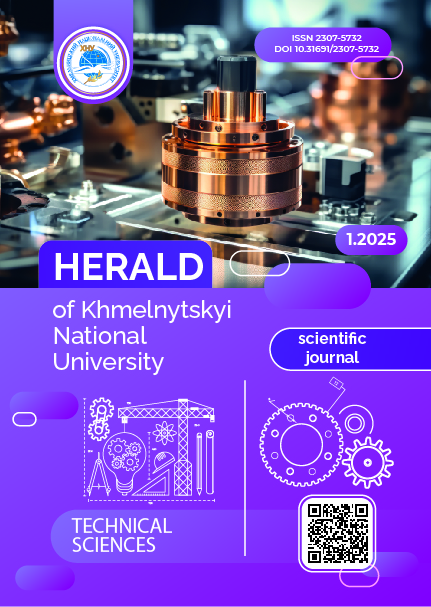METHOD FOR DETERMINING THE OPTIMAL NUMBER OF EXPERIMENTS FOR SIMULATING SOLAR CELLS
DOI:
https://doi.org/10.31891/2307-5732-2025-347-56Keywords:
Solar element, MPPT, dispersion, model, Student coefficientAbstract
The work uses a method for determining the optimal number of experiments for building a solar cell model. This allows you to set the maximum power point (Maximum Power Point, MPP), for which the power of the solar cell is maximum. The operating mode of the solar cell near this point impairs the increase in its useful efficiency. Solar energy, as a relatively new industry, is developing rapidly due to the emergence of MPPT (Maximum Power Point Tracking) controllers, which significantly increase the efficiency of solar systems while constantly maintaining the operating mode of the solar cell at the maximum power point. However, existing approaches to determining the MPP demonstrate different accuracy and require different numbers of I/V measurements, which leads to additional time and resource costs in their implementation. The work analyzes methods for determining the MPP and identifies the shortcomings of some approaches, including the need for repeated I/V measurements with significant changes in illumination. A method for calculating the minimum sufficient number of experimental points for building a mathematical model of voltage depending on the formation with a given accuracy is proposed. As a result of the study, the optimal number of points was determined, at least to ensure the accuracy of the model, which corresponds to the specified error. This allows to increase the efficiency of the modeling process and the application of solar cells in real conditions. The results obtained can be integrated into modern MPPT controllers, which will increase the efficiency and accuracy of their operation. The method can also be used to develop new approaches to modeling solar systems in dynamic operating conditions. The results of the work provide new approaches for further optimization of modeling taking into account temperature changes, which provides a more accurate determination of the maximum power point of the solar cell.
Downloads
Published
Issue
Section
License
Copyright (c) 2025 АНДРІЙ ТКАЧОВ (Автор)

This work is licensed under a Creative Commons Attribution 4.0 International License.

